POLITICS
Global Info Analytics Director Reflects On Akwatia By-Election Prediction Success
Published
5 months agoon
By
Adubianews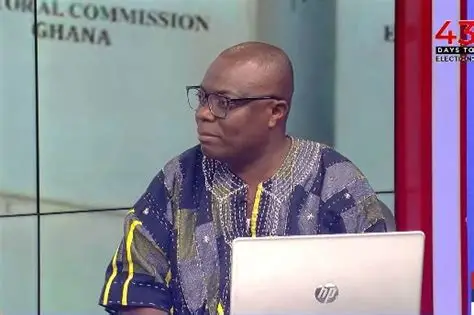
Ghana’s electoral landscape has undergone a fundamental transformation, with scientific polling and research now taking precedence over traditional campaign tactics of propaganda and emotional appeals.
This shift became evident in the recent Akwatia by-election, where Global Info Analytics delivered one of its most accurate predictions to date.
Demographic Revolution Reshapes Ghana’s Politics
Executive Director of Global Info Analytics, Mussa Dankwah, emphasizes that Ghana’s voting population has experienced dramatic changes that political parties must acknowledge. Over 70% of Ghana’s current electorate consists of voters below 35 years old, representing a seismic shift in the country’s democratic participation.
This younger demographic brings distinct characteristics that challenge conventional political strategies. “These people are well-connected, are on social media, and will be quick to fact-check you. If they fact-check you and realise that you are telling lies, that is your end,” Dankwah explained during his appearance on the Citi Breakfast Show on Wednesday, September 3.
The implications of this demographic transformation extend beyond simple age statistics. Young voters demonstrate higher levels of political sophistication, leveraging digital connectivity to verify claims and hold politicians accountable in real-time. This evolution demands that political parties abandon outdated approaches and embrace transparency and factual accuracy.
Scientific Polling Replaces Traditional Campaign Methods
Dankwah issued a clear warning to political parties still relying on outdated campaign strategies, emphasizing that modern elections require scientific approaches rather than emotional manipulation. “The word here is poll, fair game, research, and science. Gone are the days when elections are won on propaganda, emotions, insults, or just anything,” he declared.
This transformation reflects broader global trends where data-driven analysis and evidence-based predictions increasingly determine electoral outcomes. Political parties that fail to adapt to this new reality risk disconnecting from an electorate that values substance over rhetoric.
The shift toward scientific polling represents more than just improved prediction methods; it signals a fundamental change in how democratic processes unfold in Ghana. Voters now expect campaigns grounded in facts and policies rather than divisive rhetoric or unsubstantiated promises.
High-Stakes Prediction Validates Polling Methodology
The Akwatia by-election presented particularly high stakes for Global Info Analytics, with Dankwah acknowledging the intense pressure surrounding their prediction. Speaking candidly about the professional risks involved, he admitted, “I knew I would have been taken to the slaughterhouse. They were preparing to take me there to finish me if I got this wrong.”
This pressure made the successful prediction especially meaningful for Dankwah, who described it as “one of the most fulfilling” forecasts his organization has conducted. The stakes were elevated by widespread skepticism and the potential for severe professional consequences if the prediction proved inaccurate.
Ahead of the September 2, 2025, contest, Global InfoAnalytics boldly projected victory for National Democratic Congress (NDC) candidate Bernard Baidoo Bediako, predicting he would secure 53% of total votes cast. This specific percentage prediction demonstrated confidence in their methodology and data analysis capabilities.
Electoral Results Confirm Analytical Accuracy
The Electoral Commission’s certified results vindicated Global Info Analytics’ scientific approach, with Bernard Baidoo Bediako achieving a decisive victory in the Akwatia by-election. Bediako secured 18,199 votes, significantly outpacing his closest competitor, Solomon Kwame Asumadu of the New Patriotic Party (NPP), who received 15,235 votes.
The complete results showed the broad nature of the contest, with Owusu Patrick of the Liberal Party of Ghana (LPG) managing 82 votes. Election officials recorded 33,819 valid ballots with 303 rejected votes, indicating a well-administered electoral process with minimal irregularities.
These results not only confirmed the accuracy of Global Info Analytics’ prediction but also demonstrated the effectiveness of scientific polling methods in Ghana’s evolving political landscape. The successful forecast serves as evidence that data-driven analysis can effectively capture voter intentions in contemporary Ghanaian elections.
You may like
-
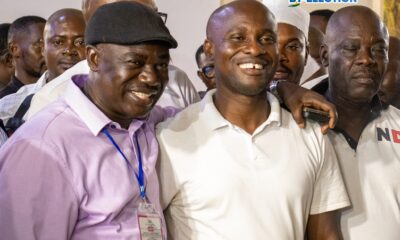

Mussa Dankwah: Vote Buying Did Not Influence Akwatia By-Election
-


Dennis Miracles Aboagye Condemns Violence in Akwatia By-Election
-
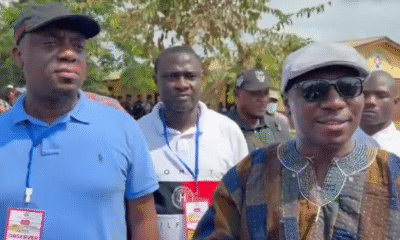

Afenyo-Markin Rejects Azorka’s Threats, Urges NPP Supporters To Stay Resolute
-
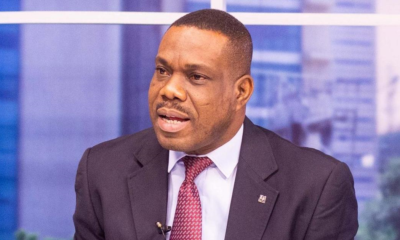

Dr Oduro Osae Warns Ghanaians Against Vote-Buying
-
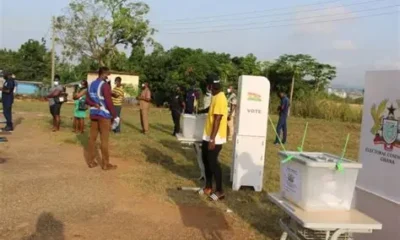

NPP Confident of Retaining Akwatia Seat Despite Polls Favoring NDC
-


NPP MP Okyere Baafi Vows to Resign If Party Loses Akwatia By-Election
-
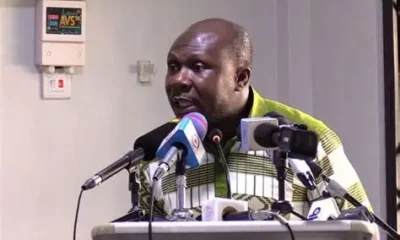

Elvis Darko Questions Police Deployment Ahead of Akwatia By-Election
-
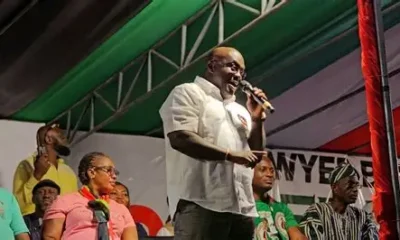

Chief of Staff Rallies Akwatia Voters for NDC Candidate Bernard Bediako
-
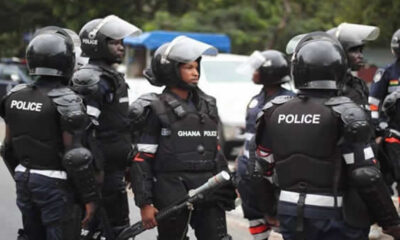

Police Call Political Parties to High-Level Meeting Ahead of Akwatia By-Election

























